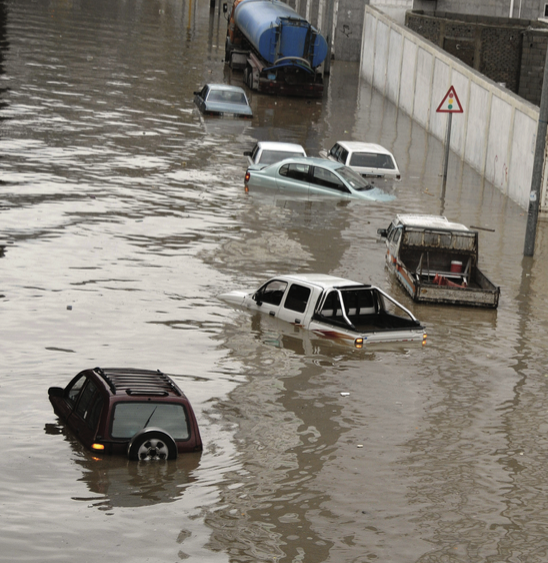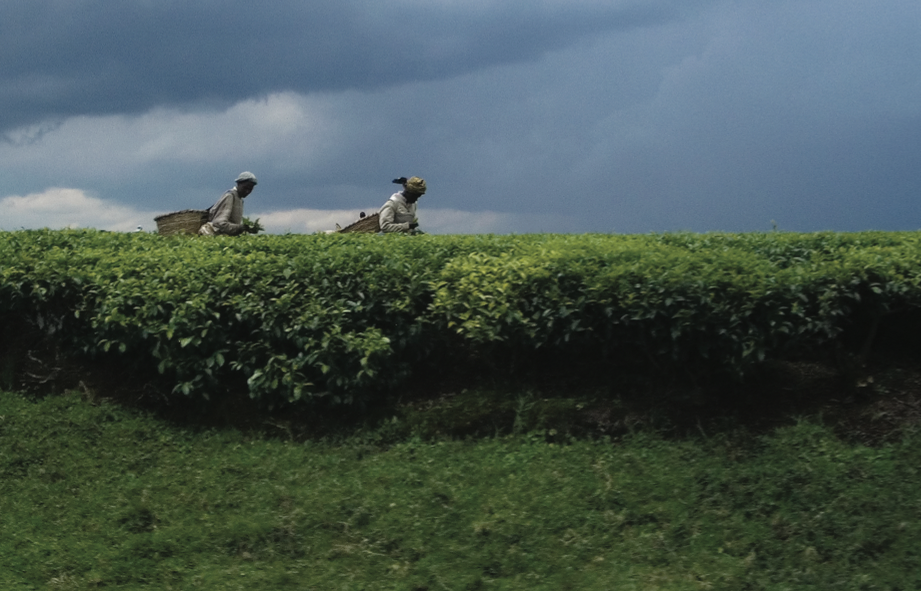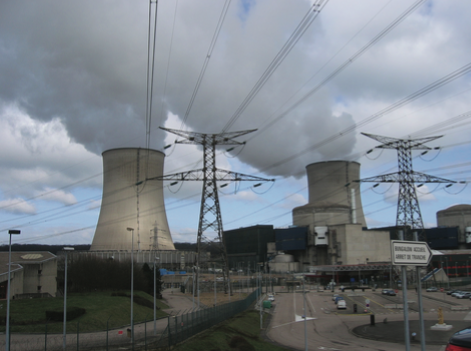Garbage is a nuisance. It threatens public health and nature, as well as sticking around for generations to come. Disposing of it is an issue with which every country has difficulties, and only few have a handle on the problem. Burning trash and open landfills are part of the regular practice of most waste management services but for many reasons, neither of these is a good solution. However, waste can be controlled, and what we toss into bins as rubbish could be a money maker and even help the environment. All that is needed are the right governmental policies and the creativity of ingenious entrepreneurs.
Consumption behavior in Lebanon is different than the West. A typical Lebanese garbage bag is filled with nearly 70-80% organic matter, mainly food remains and paper. This can be compared to the trash content of New Jersey, where organic material makes up only 40%, according to Ziad Abichaker, CEO of waste management company Cedar Environmental. The remaining 20-30% of local trash consists of plastic, glass, metals, textiles, and miscellaneous material. Of the total waste content, only textiles — which account for less than 10% — are currently not recyclable in Lebanon, nor can they be sold to recycling centers abroad.
State of affairs in waste regulations
Waste collection, or the hiring of a collection service, is under the authority of the municipalities. However, regulations have not caught up with the times. As Abichaker pointed out, open dumping remains the main disposal method not only in Lebanon but in the whole of the Middle East. Open dumping, or landfills, means that all garbage, including recyclable materials and organic substances, is simply thrown together in one area. He explained, “They are used to the idea that garbage is waste, something to be disposed of.”
Not only is it a shame to waste materials that could be used again, this approach is an environmental hazard that leads to sink holes, methane gas explosions and fires from the organic materials rotting away.
Sukleen is the largest waste management service in Lebanon and operates within Greater Beirut and Mount Lebanon, with the exception of Jbeil (Byblos). Ill-equipped and under-
funded, most other municipalities are getting buried by their own waste. Jacopo Monzini, technical officer for the Italian Cooperation for Development, a general directorate of the Italian Ministry of Foreign Affairs, said that as 90% of municipalities are not covered by the Sukleen contract and therefore must deal with waste removal themselves, “They don’t know what to do with their waste nor have they any idea how to treat it.”
Ali Darwish, president of Green Line, a Lebanese environmental NGO, thinks that this is a national problem and thus requires a policy at the national level rather than policies that are decentralized and individualized for each municipality.
Currently, only an estimated 5% of recyclables (plastic, glass, metals) are being recycled and less than 20% of organic items are turned into compost, according to Wael Hmaidan, executive director of IndyAct, the League of Independent Activists. And, he said, at present cities such as Saida and Tripoli do not have recycling programs.
The Saida “garbage mountain” is a good example of an open landfill and its ramifications. The garbage site, 45m high and 150m long, has a total volume of around 1 million cubic meters. The landfill is a mixture of municipal solid waste but also contains industrial, hospital, and slaughter waste. Pockets of methane gas are formed inside the mount from the decomposing organic material and regularly catch fire.
The garbage mountain is a travesty both in terms of public health and the environment. Besides being an eyesore on the coastline and the terrible smell, the mountain is leaking chemicals into the ground water used for drinking and garbage regularly falls into the sea. Just in February alone, as a result of a winter storm the garbage mountain dumped an estimated 150 tons of trash into the sea.
Unfortunately, aggregate statistical information remains unattainable. According to Sukleen’s own estimation Lebanon produces 4,000 tons of waste per day, with Greater Beirut and Mount Lebanon alone accounting for 2,300 tons, but nobody knows for sure. The Italian Cooperation, through its Ross Program, has been working to collect data to fill this void. “If you don’t know how much waste you are producing, it’s impossible to plan,” explained Federico De Nardo, project coordinator at the Italian NGO. “You have to know how much raw material you are getting.” The Italian Cooperation is also collecting data on the amounts of material collected by the municipalities to forecast needs and help them to manage their waste and recycling. A major effort is the reorganization of recycling programs that previously had been random, and often resulted in potentially recyclable material to become unusable for recycling companies. By correcting this problem, the waste has also become more valuable.
Several NGOs have called attention to solid waste management and lobbied for stronger regulations and more efficient collection processes. However, most of their cries have gone unheard. In the past, development aid to Lebanon had included waste management. USAID has funded several facilities, but once the project had been completed these proved to be unsustainable. The Italian Cooperation is now rehabilitating five of those facilities to make them sustainable and restart recycling in the south.
NGOs are also battling the perception of many in the government that recycling is neither profitable nor worth the effort. But as Green Line’s Darwish pointed out, one perfect counter-example is the fact that hundreds of people are living from individual recycling collection efforts in the suburbs.
Out of the high density polyethylene (HDPE) plastic that makes up most plastic objects like, shampoo bottles, vegetable containers and flower pots are made. PET plastic, used in most drink bottles, is also recycled locally. Metals have to be shipped abroad to be recycled because of the high energy needs of their recycling plants.
With per-ton prices at $1,000 for aluminum, $400 for HDPE plastic, $250 for PET plastic, and $90 for other metals, the informal sector has become involved in picking through trash bins for extra cash. “The informal sector you see collecting cans and cardboard are now actually organized companies,” explained Hmaidan.
Sorting at the source
Sorting garbage is a multi-stage process. The most effective takes place at the source, i.e. when you throw your garbage away. Several projects are aiming at getting citizens to sort their waste at the bins themselves. In South Lebanon and the Bekaa, the Italian Cooperation has begun a public awareness campaign and provides public trash bins dedicated to organic and inorganic waste. “It’s very important for the municipality, as they can more efficiently separate the recyclables and get some income from recycling,” explained De Nardo. However, sorting bins is not a national policy and there are few working sites despite calls for more.
Composting
After sorting the organic from other materials, the waste is then processed in two ways. The recyclable materials go to specific recycling plants and the non-
recyclables make their way to landfills or are burned. The organic matter that should not be in landfills is converted into compost to be used by farmers as a soil enhancer and goes through an approval process for agriculture use. The Italian Cooperation, for their part, complies with European standards for composting. De Nardo insisted that there is a demand for compost in the South because of soil depth and mineral deficiencies as well as the lack of animal farming.
The business model for setting up a waste management plant is difficult. Cedar Environmental’s Abichaker explained that for the municipalities, setting up a recycling plant rests solely on the part of the investor as they operate under the assumption that the investor puts up all of the money for the plant (around $400,000) and they give the plant the garbage for free. However, he explained, “It’s not profitable now because if I have to put up the initial investment and operational costs, the break-even point takes between 7-8 years while the lifespan of the project is only 10 years.”
According to him, when Europe and the US faced the same problem with waste management they instituted what became known as a “tipping fee”: The public sector gives the plant a flat rate per ton of waste collected. With the tipping fee, the break-even point is shortened to that of a normal industrial plant of 3-4 years.
Getting paid by ton
The tipping fee isn’t without its critics. For Darwish, however, being paid by weight gives very little incentive to separate the refuse for recycling without stricter recycling policies in place but instead lends itself to collecting more and more. “When you get paid by the ton, you have more interest in collecting more tons to dump into your site.”
This situation, he said, has led to the problem with the Naameh landfill just outside Beirut. Instead of separating the waste and landfilling only those parts that could not be recycled or composted, the focus moved to simply collecting more. The landfill had initially been projected to run for 10 years. Because of open landfill policies in place the dumping ground reached its capacity halfway through and had to be expanded.
Lebanon’s most famous waste collection and recycling company, Sukleen, is a giant operation with around 1,200 regular employees and 1,800 cleaning operators. Its activities are handled by two main departments: City Cleaning Operations for the municipal solid waste collection, street sweeping, recycling, in addition to special operations, and Vehicle Maintenance & Repair. Both departments operate with the common objective of providing the best quality services for the community, in conformance with the ISO 9001: 2000 quality standard. The City Cleaning Operations units work around the clock. Sukleen keeps abreast with the latest technology in the waste management sector through, for instance, the implementation of the Fleet Management (FM) system, which is a monitoring system to evaluate the drivers’ performance and the vehicles parameters. As part of the FM, all vehicles have Global Positioning System (GPS) units that allows routes audit, planned versus actual routes comparison, and thus increases operations efficiency.
Sister company to Sukleen, Sukomi Waste Treatment runs four plants using a state-of-the-art technology for sorting. The final disposal of waste rejects and bulky items takes place at two different sanitary landfills, operated and managed by Sukomi. Both landfills were designed and constructed, and are operated, managed and controlled as per the British waste management standards and codes of practice. Both Sukleen and Sukomi are owned by Averda, one of Lebanon’s largest companies. Unfortunately, data for revenue is not available to the public.
Cedar Environmental operates nine facilities on a small, decentralized model in communities of around 25,000 people — located mainly in the south in Naqoura, Aitaroun, Jbaa, Queia, Qabrikha, Khirbit Siyum, Chakra and Kfarsir, and two in the north (Douma and Jbeil) — which makes for easier manageability and cuts transportation costs. Yearly revenue is around $1-2 million. The waste management company sorts out the recyclables into their different categories. Plastics are then further sorted by type, shredded and sold to other recycling plants. Organic materials, as usual, are made into compost. By using their odorless “Dynamic Composting Technology” in the process, Cedar Environmental has not faced the same NIMBY (not in my backyard) problems with which other operations have to contend. Altogether, Cedar Environmental is able to recycle 98% of the waste.
In order to be profitable, the company had to find innovative ways outside of the low tipping fee provided by municipalities and the recycled materials they sold. As a major innovation, Cedar Environmental has been able to produce a fertilizer out of their compost that has been authorized for use in organic farming. The quality of the compost can fetch $100 per ton instead of the non-
profitable regular compost.
Abichaker is working on an awareness campaign for farmers to make the switch to organic farming, which can get double the price of ordinary produce. Cedar Environmental is also doing a bit of its own organic farming to use as an example of just how profitable making the change can be.
He avers that “the switch is going from a quantity paradigm to a quality paradigm.” If farmers would come on board, he argued, Lebanese produce achieve value added and could serve the growing, very lucrative market for organic food. “Ultimately, I believe, we could be leaders in this kind of agriculture.”









